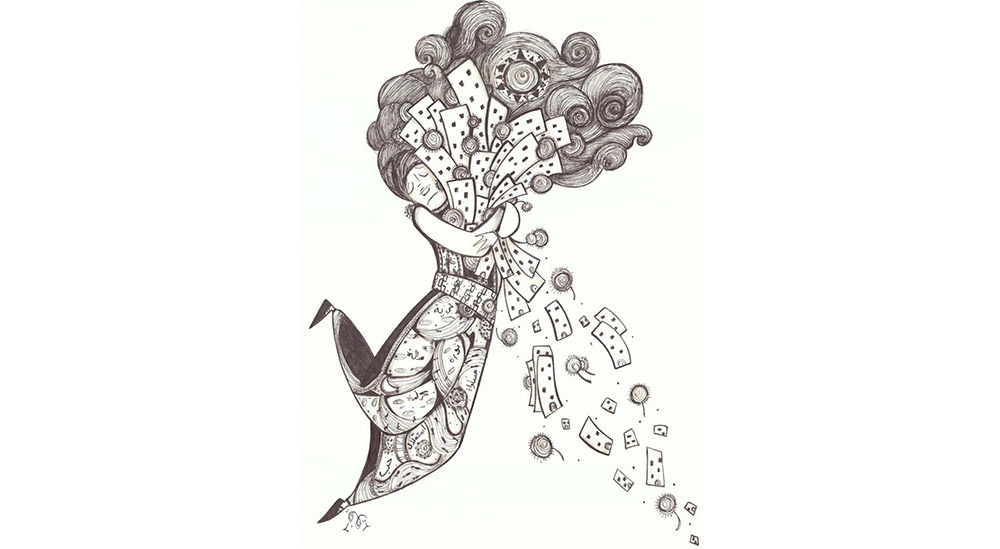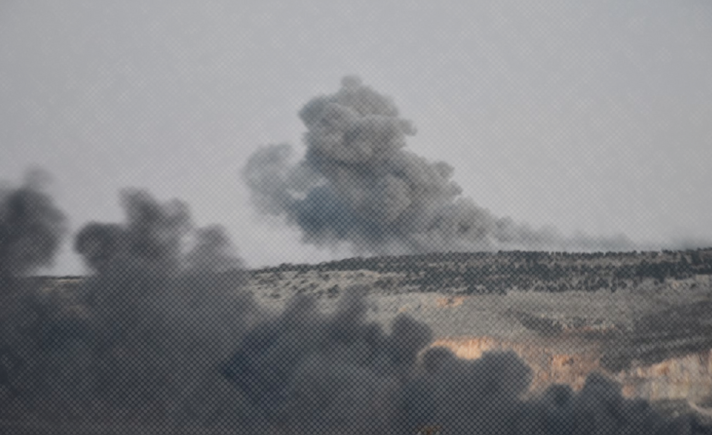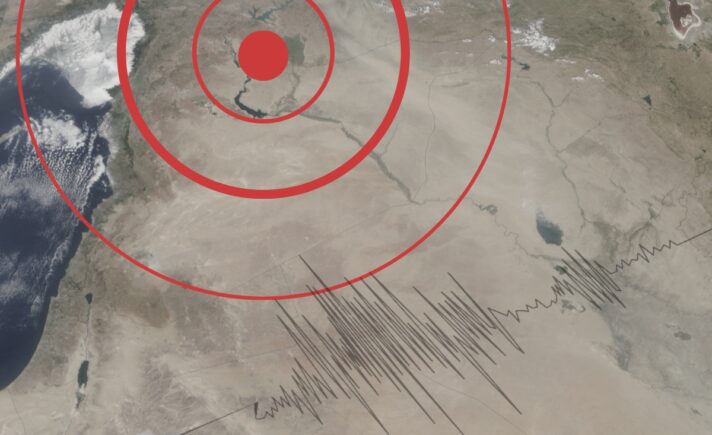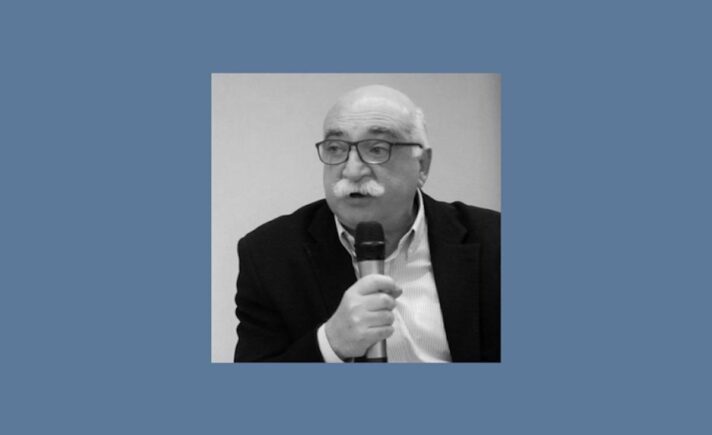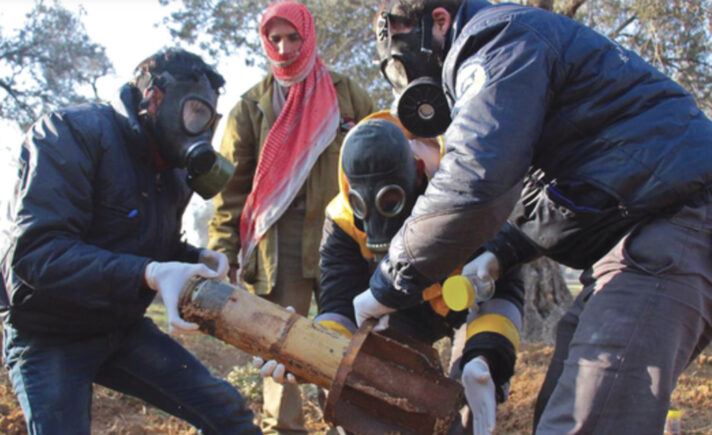[Editor’s note: This article is a response to an earlier Al-Jumhuriya article, ‘Siege versus prison in Assad’s Syria: a comparison,’ written by the former political prisoner Osama Nassar, currently living in besieged East Ghouta, outside Damascus. It was originally published in Arabic on 5 December, 2017. The artworks used in this article were created by Dima Nashawi.]
I read your article a first time, with tears, knowing full well this wasn’t the reaction you were seeking from us. I don’t know if you seek anything from us anymore, or if part of your acclimatization with imprisonment is that you forget we exist over there, at the edge of the detention facility.
The second time, I decided to write you a response.
Letters have that effect, in prison as under siege, of breaking the gate and the checkpoints, and infiltrating. Relatives review them, censoring themselves, before the letters pass before the jailor’s eyes, hoping to spare their loved ones additional torture. As for us, we review them fearing ourselves before anything else; fearing our comfort and the “normality” of our lives.
You come to us, sometimes, as news on the screen, and we try to act as if we were never over there, and as if you were never one of us. We stay silent, and claim we’re very “natural,” and this is one of the requirements of “integration,” and other such terms that have come to take over the details of our lives.
You come to us, via the cell phones that never leave us. We become an extension of our screens, in order that we might become a part of your day. And because we’re an extension of our screens, we sometimes fear that you turn into a theatre scene, and that we forget you are more than a story and a star role; that you are people who experience love, and hate, and perseverance, and irritability, and revolution.
And because we’re an extension of our screens, we likewise fear our comfort as we pass our judgments on your images. “It’s very bloody, that photo,” it will put off “our audience” who are sensitive about blood and bodies. That comfort of ours permits us to “filter” what your eyes are not able to cherry-pick from your everyday reality.
We read for you, or about you, while everything around us gives no indication that you exist, or even that we still exist. I had thought that humanity would stop in a dramatic scene at the death of this number of children in one go; what, then, if they died of starvation?
And yet, we’re here, at the edge of the siege and the prison, and life—or something like it—continues. We watch you and believe in you, and we carry on our day as though you aren’t here, and we aren’t there.
Most of our time, we’re preoccupied with solving an equation: “Who wants an additional Syrian on their land?” And after we find our final destination, we’re compelled to be preoccupied with a matrix of official papers, worth more than what we ourselves are worth, in order to prove we aren’t against anyone.
We survivors are asked at all times to demonstrate to those who preferred to know nothing about us for seven years that we are innocents deserving that survival for reasons we still don’t know. And at the exhausted end of our day, we sneak a timid glance toward you, and scold ourselves for complaining about checkpoints and airports and border police, when compared to a single day in your shoes.
We try, from the moment of our departure (let us say safely, metaphorically) from that holocaust, to find an answer to the meaning of our survival. How can we make, of our remaining alive, something of meaning? We fail time and again, and then a courageous, moral, and true rebellion comes from you, despite all the asphyxiating force of the siege, and moves us to rise from our stupor and try once again.
We try not to grow comfortable with the exception of you—you are exceptional, Osama—and we must learn always how to convert that exception into change, rather than an icon on the wall of our sense of uselessness.
You are exceptional, though you are not alone.
We try the opposite, too, at other times; we try to behave as if we don’t know that land; we’ve never buried anyone in it; nor was it there that we bade farewell to dreams. We try to ignore everything, and to enjoy a hackneyed and exaggerated happiness which we don’t believe and which doesn’t believe us. And when we fail, we return to our gloom, to find you over there fighting not just for survival, but for life to be life, and we grow ashamed at our gloom and return to extend, from our wreckage and yours, a bridge that might lead us to you.
We arrive at you without prior introductions; was the revolution itself not introduction enough? This revolution of which the world washes its hands today, defeated or victorious: we exult in our affiliation to you through it—or, perhaps the opposite, our affiliation to it through you.
We despair, and thus permit the planet to slumber restfully while over there among you are people without medicine. We’re defeated, and thus the butcher murders you more, heedless of our internal defeat.
We feel a useless guilt, and try to find persuasive replies to a question: were we wrong to leave? We, who get out, and work, and make friends, and become preoccupied with ourselves, and our conflicts, and imaginary battles; losing friends—for logical reasons, sometimes, but most of the time due only to the madness.
Outside prison and the siege, we take out all our anger on comrades who shared the dream with us, and we wage our wars against one another, squandering our energies on nothing. Do you monitor our stupidities?

We try not to be attached to you and your stories any more than necessary, so as not to become the brothers and relatives and children of whom you spoke in your article, who grow up in your absence, and miss you. And we fail, finding ourselves forced to be attached, not only to the hope which you haven’t lost despite your istihbas [the belief that one’s imprisonment will be permanent], but also to tiny details, like the way of pronouncing “kilo,” and the pluralizing of sukkar [sugar] as sukkarat.
And we hide the astonishment, when we try to understand what that “momentous” event is between Douma and Ghouta, we who return to the map when we hear that Mesraba is bombed, and the most we can do about it is pray for you, returning to a supplication we had abandoned, asking God to preserve your smiles for us. We who, whenever we fail to condemn Assad clearly, pour out our anger on al-manfush [a notoriously extortionate seller of dairy products in besieged Douma]; our useless anger, of course.
In contrast to you, perhaps, in exile our productivity depends on our conviction about the possibility of your situation changing, and ours too. If we surrender to istihbas, we’ll be killed by despair, and the sin would be left as a mark on our souls, and sometimes on our bodies.
In contrast to you, completely, we who are exposed to the violence as spectators, need to believe that there is something we can do to make that siege less terrible, and that prison less painful, and the jailor’s letter less frightening, so that a generation other than ours and yours might one day break the equation of torture, and imprisonment, and chemical weapons, and refugees, and exiles, and those forbidden to travel.
So that we might succeed together in putting an end to the terror of “Assad’s Syria,” and leaving others enough of an inheritance to enable them to assassinate the legend of “the Immortal Leader.”


